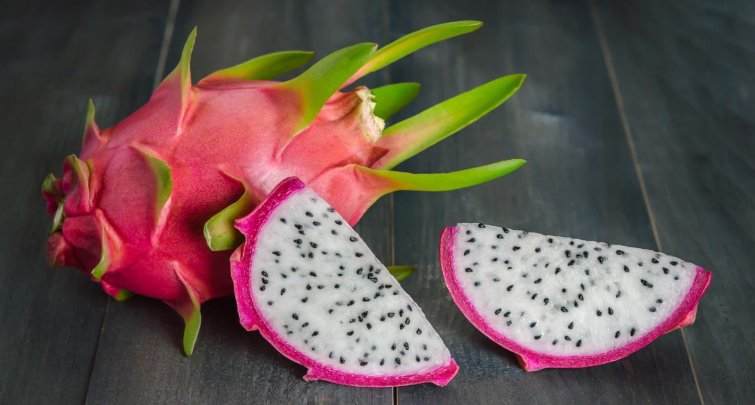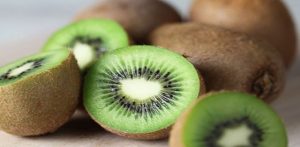Eating pitaya (dragon fruit) on a regular basis may help relieve and prevent constipation.
Dragon fruit might achieve this by providing your body with certain nutrients and compounds known to help bowel movements, such as dietary fibre.
This article thoroughly explains why it might be a good idea to consume dragon fruit if you are prone to constipation.
What Does the Research Say?
Above we said that eating dragon fruit might be beneficial against constipation as this tropical fruit contains certain nutrients and compounds known to aid bowel movements.
It is however important to note that the effects of dragon fruit on bowel movements haven’t been tested with scientific studies that involve human subjects.
There is only a mouse study, carried out in 2019, where the researchers found that dragon fruit’s oligosaccharides compounds might have laxative effects.
So until robust scientific studies, involving human participants, appear we should say constipation relief is a “potential” benefit of dragon fruit.
Firstly, let’s understand constipation, then we’ll explore how certain nutrients in dragon fruit can aid bowel movements.
Understanding Constipation
As per reports; about 10 to 20% of the world’s adult population have symptoms of constipation [1, 2, 3].
In the U.S alone, around 2.5 million people visit hospitals every year due to constipation [4, 5].
Health authorities define constipation as having less than three bowel movements a week or difficulty passing stools [6, 7, 8].
According to the National Institute of Diabetes and Digestive and Kidney Disease, the following are among the main symptoms of constipation:
- Having fewer than three bowel movements a week
- Hard, dry and lumpy stools
- Straining while defecating
- Painful defecation
- A sense that not all stool has passed
Many factors including depression, illnesses, medication and not getting enough exercise can lead to constipation. Yet, in most cases, constipation occurs due to low fibre intake and not drinking enough water [6, 9].
For this reason, people who are susceptible to constipation are usually advised to increase their fibre and fluid intake.
Dragon Fruit Against Constipation
So, what is it in dragon fruit that might prevent or relieve constipation? There are three plausible theories:
- Dragon fruit is a good source of fibre
- The fruit contains a decent amount of magnesium
- Dragon fruit contains oligosaccharides that act as prebiotics
Research confirms that dietary fibre has beneficial effects on constipation as this nutrient improves digestion in several different ways [10, 11].
Magnesium as well may help prevent and relieve constipation by adding bulk to the stool and drawing water into it.
Note: Many foods contain magnesium and fibre; however, dragon fruit contains both of them in decent amounts.
In addition to fibre and magnesium, dragon fruit contains oligosaccharides compounds that may reduce constipation symptoms according to some studies [12, 13].
The availability of these nutrients and compounds in dragon fruit suggests that pitaya may help individuals combat constipation.
Here is the scientific explanation of how these nutrients found in dragon fruit help promote healthy bowel movements.
Dietary Fibre for Constipation
Dietary fibre promotes bowel movements by adding bulk to stool and softening it. This in turn makes the stool easier to pass through the colon [14, 15].
Needless to say, the easier the stool goes through the colon, the less risk there is for constipation.
A meta-analysis revealed that dietary fibre can obviously increase stool frequency in patients with constipation.
In short, if you eat enough fibre in your diet, you can significantly reduce the risk of developing diet-related constipation.
According to health guidelines, adult women should consume at least 21 gm of fibre per day, while men should aim for at least 30 grams of fibre [16, 17, 18, 19].
Dragon fruit is a good source of fibre, offering around 3 grams of dietary fibre in a serving of 100 grams [20, 21].
By adding dragon fruit to your diet you can increase your daily fibre intake, which in turn may reduce your risk of developing constipation.
Magnesium and Constipation
Reports tell us that half of the U.S population consumes less magnesium per day than the RDA for this essential mineral [22, 23, 24].
One of the potential consequences of inadequate magnesium intake is constipation [25, 26].
Especially IBS patients, many of whom are magnesium deficient, are prone to constipation.
The recommended daily allowance (RDA) for magnesium is 310–420 mg for adults depending on age and gender [22, 27].
Dragon fruit contains more magnesium than most fruits! 100 grams of pitaya can supply 10% of your daily magnesium requirement [20].
- Magnesium is suggested to facilitate muscle contraction in the intestines and softens and adds bulk to the stool and thus helping alleviate constipation symptoms [28].
So if you are prone to constipation, make sure you consume enough magnesium as well as fibre each day. This helps keep you regular. It bears repeating; dragon fruits are a decent source of both fibre and magnesium.
Oligosaccharides Act as Prebiotics
Another reason dragon fruit is associated with better digestion is that the fruit contains oligosaccharides, a type of carbohydrate.
Oligosaccharides are known for their beneficial effects on the growth of good bacteria in the intestines [29, 30].
In 2019, researchers from Thailand fed mice with oligosaccharides extracted from pitaya to investigate whether dragon fruit may affect intestinal motility.
Pitaya exhibited laxative effects as well as several other digestive benefits in mice.
This animal study is indeed promising. However, robust scientific studies are needed to understand whether dragon fruit can act as a natural laxative in humans.
Things to Consider
- In most cases, increasing fibre intake helps relieve and prevent constipation. Therefore, we said fibre-rich dragon fruit might help you defecate. However, if you have chronic idiopathic constipation — a type of chronic constipation that has no obvious cause — talk to your doctor about how much fibre you should consume a day. Because increasing fibre may worsen constipation symptoms in people with chronic idiopathic constipation according to some studies.
- If you are planning to increase your fibre intake do it gradually! Because a sudden increase in fibre intake may cause some side effects such as gas, bloating and cramping. Do also increase your water intake if you are to increase your fibre intake in your diet.
- Eating too much red dragon fruit may turn your pee pink or red, and it is not harmful.
- Dragon fruit is suggested to be low in FODMAP. So, people with IBS-Constipation can consume the fruit.
Other Fruits That May Help with Constipation
Conclusion
It is quite early to label dragon fruit as “An alternative therapy for constipation”. This is because there is no human study that has examined the effects of dragon fruit on bowel movements.
In the coming years, we may see such studies as dragon fruit’s popularity is rising around the globe.
That said, dragon fruit is a decent source of both magnesium and fibre and contains oligosaccharides which act as prebiotics. The presence of these nutrients and compounds suggests that dragon fruit might help people with constipation.
So if you are prone to constipation, adding nutritious dragon fruit to your diet may help alleviate your symptoms.
Please note that if your constipation isn’t diet-related, foods are unlikely to induce bowel movements.
See your doctor, if you experience:
- severe abdominal pain
- blood in your stool
- unintended weight loss
Remember the most effective way to manage chronic constipation is to work with a doctor or a dietitian.




